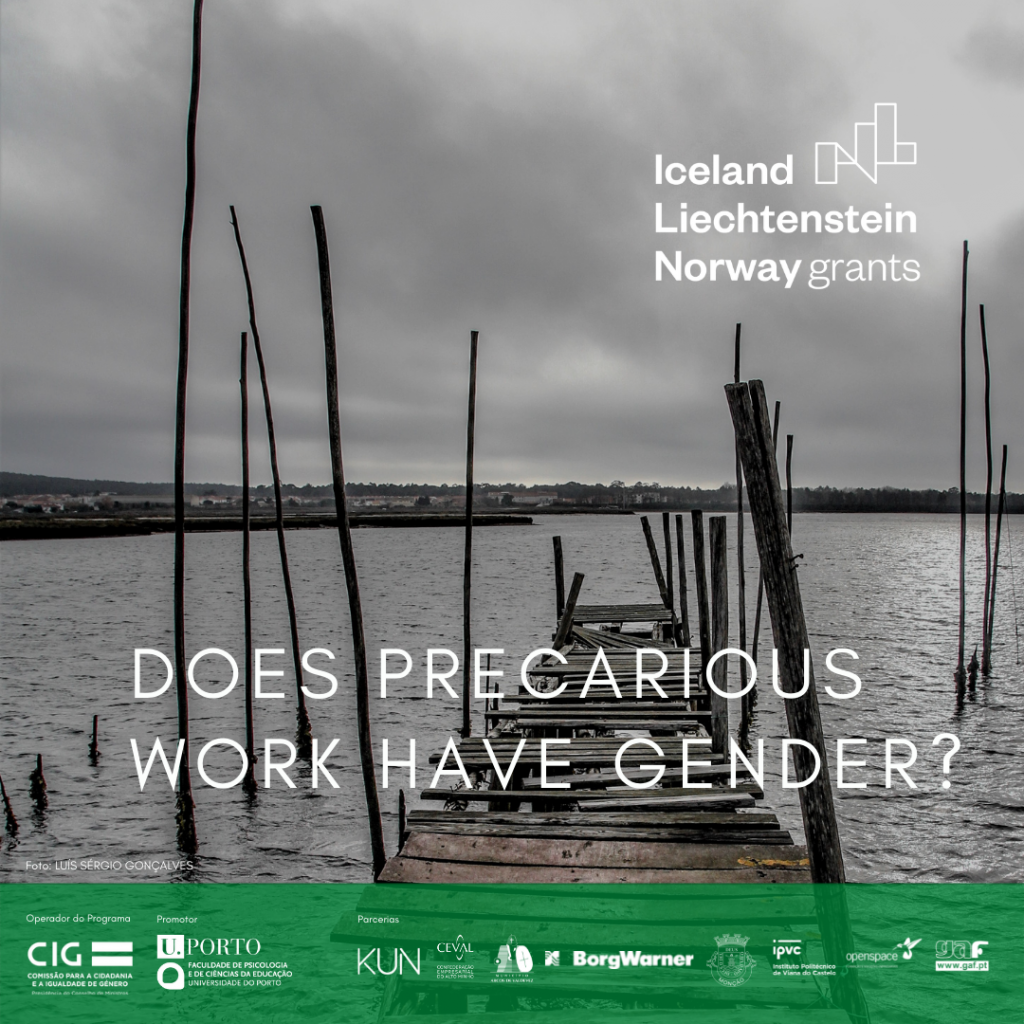
According to European Union (2017), part-time work contracts without term or involuntary part-time work are one of the most visible forms of job insecurity. This situation affects more women than men. In Portugal, the proportion of women working partially involuntarily is higher than the European Union average (EU28). For men, the difference between Portugal and the EU28 is 2.5 percentage points; in women, this difference reaches 28.7 percentage points (CIG, 2017; EUROSTAT, 2015). According to several authors (eg Casaca, 2012; Gash, 2008; Yerkes, 2013), much of the explanation for this type of inequality is based on gender roles, the lack of equal sharing of family responsibilities, as well as the difficulty of work-family reconciliation. In other words, companies and organizations continue to determine part-time work, associated with temporary needs, for women, because they perceive them as less available and dedicated to paid work, due to family and domestic responsibilities (Casaca, 2012).
